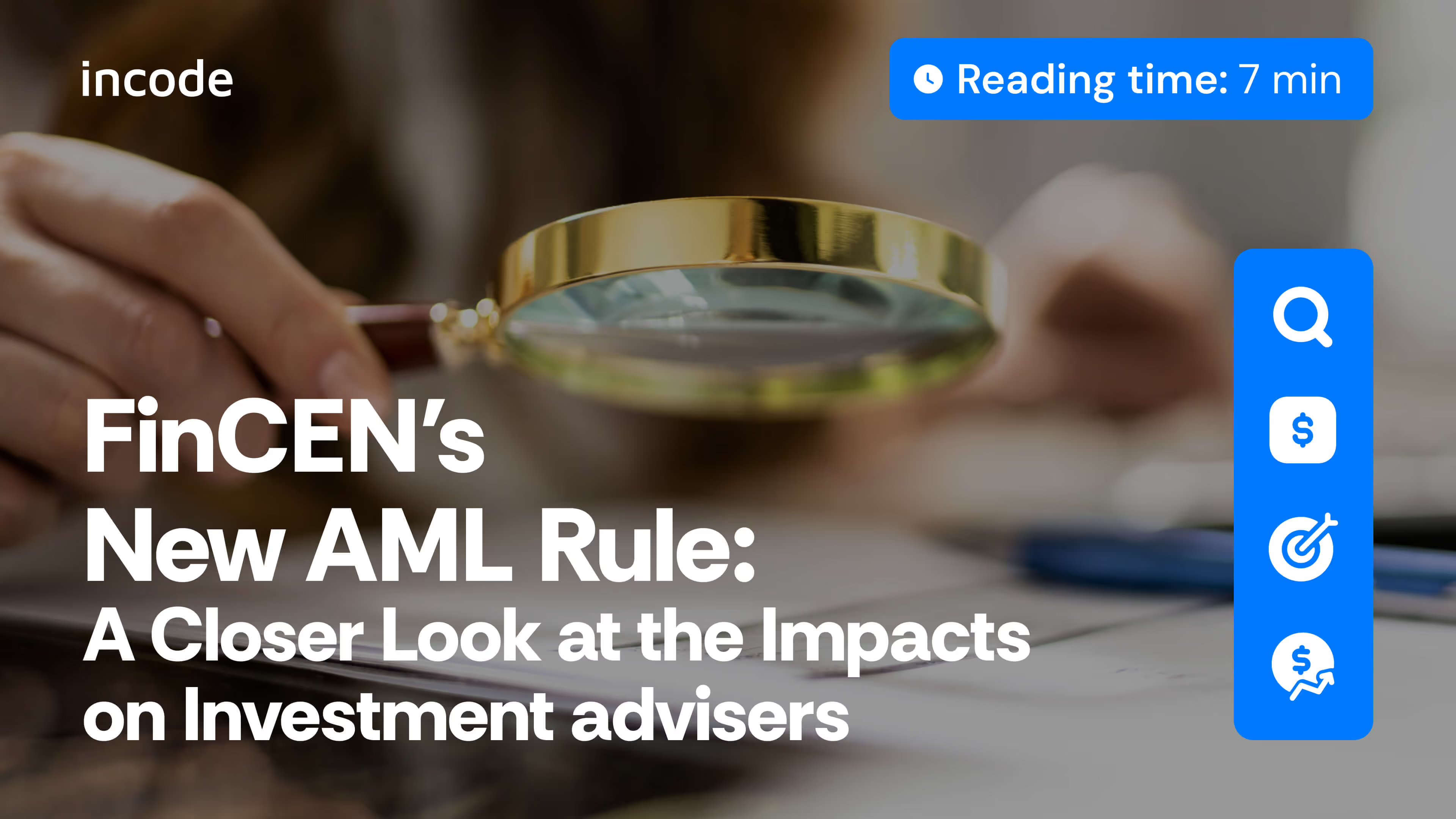FinCEN’s New AML Rule: A Closer Look at the Impacts on Investment advisers


Diversification is the rule of thumb when it comes to making sound investments. Now FinCEN, the U.S. financial crimes watchdog, is following that same advice when it comes to mandating anti-money laundering (AML) protections under the Bank Secrecy Act (BSA).
Making good on its promise earlier this year, FinCEN has issued a Final Rule that now categorizes certain registered investment advisers (RIAs) and exempt reporting advisers (ERAs) as financial institutions and thereby extends AML and combating the financing of terrorism (CFT) program requirements. This change, effective January 1, 2026, is intended to improve the detection and reporting of an increasing number of suspicious activities that have crept into the investment adviser sector.
The rule covers various aspects such as ongoing customer due diligence, recordkeeping, reporting obligations, and the establishment of comprehensive AML/CFT programs.
Banks have long been the main target of financial crimes and the first line of defense against money laundering and other national security and monetary system threats. Consequently, they have also been the main focus of regulatory compliance requirements and enforcement.
Ever-resourceful criminals have turned to other financial gateways. Investment advisers, who are inconsistently regulated as an industry, have become an enticing entree for foreign actors, tax evaders and sanctioned parties such as Russian oligarchs who need to safely park illicit funds, according to the U.S. Department of Treasury. Private funds are also giving foreign governments early and controlling access to emerging technologies that could eventually be used in nefarious ways.
Under the Final Rule, investment advisers are defined as any individual, trust or legal person registered or required to register with the SEC as an investment adviser under section 203 of the Investment advisers Act of 1940. The definition includes:
It excludes certain mid-sized and multi-state advisers as well as advisers without assets under management and pension consultants, which are generally less at risk for financial crimes.
The Final Rule includes those foreign-located investment advisers, or those with a principal office and workplace outside the U.S., who provide U.S.-focused advisory services serviced by U.S.-based employees or advisory services to a U.S.-based individual or U.S.-based investor in a foreign-located private fund.
The requirements for an AML/CFT program were not as all-encompassing as proposed in May. It excludes due diligence requirements for mutual funds and any non-advisory activities such as managerial responsibilities related to sitting on a board of directors as well as sub-advisory activities, such as those provided to other investment advisers.
Although FinCEN will require covered investment advisers to file a suspicious activities report (SAR) in the event of any red flags that are observed on portfolio companies, they are not required to conduct special due diligence on these companies as part of the AML/CFT program.
Likewise, only covered Investment advisers will continue to be responsible for filing FinCEN’s Currency Transaction Reports (CTRs) when cash transactions exceed $10,000 as well as adhering to the Recordkeeping and Travel Rules, requiring that records be retained for all transfers of $3,000 or more. They will not be required in cases where the investment advisers have direct account relationships with qualified custodians subject to AML/CFT.
Investment advisers must develop and implement their respective AML/CFT compliance programs by Jan. 1, 2026 or face legal consequences.
Minimum program requirements per FinCEN include:
Keeping in mind the impact this will have on small businesses, the agency notes that the program should be “consistent” with the organization’s structure and have a relative scope, complexity and cost, provided the company does not also have an outsized risk profile.
Programs can also be outsourced, for instance to third parties, although the investment adviser itself will still be liable for and responsible for responding to FinCEN and SEC requests and must be able to demonstrate compliance with requirements as well as explain procedures. Law enforcement requests will also require direct responses.
The countdown is on for covered investment advisers. Given the costs of complying — and the greater costs of failing to comply — efforts should be starting in earnest to ensure full compliance in a little over a year. Conducting a thorough risk assessment is key to designing the right response. Professional guidance is highly recommended for safely navigating the changing regulatory landscape and ensuring that you are fully prepared to pivot.
Indeed, other regulations will be quick to follow in shining the spotlight on investment advisers. The Treasury Department and the SEC announced in May that they are pursuing a joint rule requiring investment advisers to each implement their own customer identification program (CIP) to ensure that clients are identified and verified.
The January 1, 2026 deadline for covered investment advisors to comply with the new FinCEN rule is fast approaching. Establishing robust AML/CFT and CIP programs is essential, but it doesn’t have to be overwhelming. Incode’s industry-leading identity verification platform can empower you to navigate these new regulations confidently.
Our AI-powered solutions streamline onboarding, enhance due diligence and fortify your fraud prevention measures, allowing you to focus on your core business of managing investments. Don’t let compliance concerns hinder your growth. Partner with Incode and protect your business while providing a seamless experience for your clients. Book a demo today to explore how we can support your success in this evolving regulatory landscape.